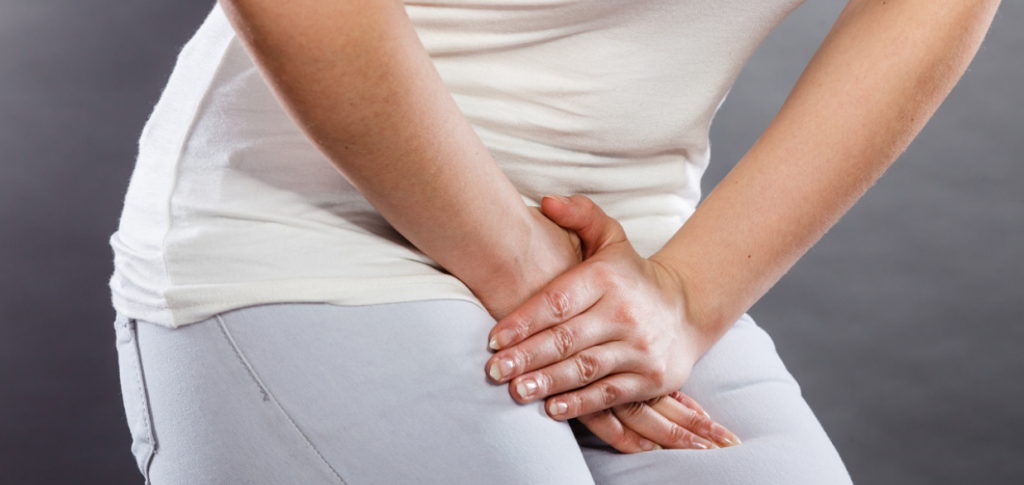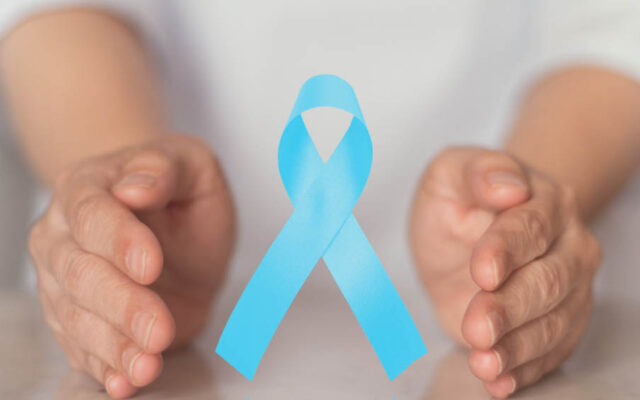
Physical Therapy
 Oaklawn’s Pelvic Health Rehabilitation (or Pelvic Therapy) team are physical pelvic therapists with specialized training in the treatment of pelvic pain and pelvic weakness conditions, such as urinary incontinence. Our physical therapists thoroughly examine the muscles, nerves, and tissues in the pelvic region, as well as your abdomen, back, hips, legs and posture to provide an individualized treatment program. It is a common misconception that it is “normal” to leak a little, especially with age. Although common, it is not a normal occurrence that you to have to inevitably accept. There are many reasons why dysfunctions may occur including pelvic or abdominal surgeries, childbirth, strenuous activity, sexual injury, lumbar disc issues, habitually poor urinary or bowel voiding habits, or simply weak pelvic floor muscles.
Oaklawn’s Pelvic Health Rehabilitation (or Pelvic Therapy) team are physical pelvic therapists with specialized training in the treatment of pelvic pain and pelvic weakness conditions, such as urinary incontinence. Our physical therapists thoroughly examine the muscles, nerves, and tissues in the pelvic region, as well as your abdomen, back, hips, legs and posture to provide an individualized treatment program. It is a common misconception that it is “normal” to leak a little, especially with age. Although common, it is not a normal occurrence that you to have to inevitably accept. There are many reasons why dysfunctions may occur including pelvic or abdominal surgeries, childbirth, strenuous activity, sexual injury, lumbar disc issues, habitually poor urinary or bowel voiding habits, or simply weak pelvic floor muscles.
Signs of Urinary Incontinence
If you’re wondering whether or not you’re suffering from urinary incontinence, take a moment to answer the following questions:
- Do you urinate more than once every two hours?
- Do you leak when you cough or sneeze?
- Do you find yourself racing to get to the bathroom in time?
If you answered “yes” to any of these, then it’s a discussion worth having with your primary care provider. Urgency and frequency of urination can be improved by retraining the bladder, but you must get a referral from your physician.
Pelvic Pain
Chronic pelvic pain (CPP) is any pelvic pain lasting more than six months. Both men (especially following prostatectomy) and women can develop CPP. Tension in the pelvic muscles can affect the bladder and the bowel, and may cause pain in the back and legs. CPP can also cause:
- Constipation
- Guarded (slow) body movements
- Difficulty sleeping
Ask your primary care provider if Pelvic Health Rehabilitation may be right for you. A physician referral is required and covered by most insurances, including Medicare.
You might have a problem if you have one or more of the following conditions:
Urination
- If you urinate more than 8-10 times in 24 hours and/or more than 3 times a night on a regular basis
- If you leak while coughing, laughing, or sneezing
- If you ever have to wear any pad for urine collection
- If you cannot hold it when you hear water or are trying to get to the bathroom quickly
Bowel issues
- Constipation lasting longer than 3 months (less than 3 bowel movements a week, straining/pushing to get it out, hard or lumpy stool, feeling of not fully emptying)
- Any persistent uncontrolled bowel or gas leakage
- Sensation of something like a golf ball stuck in the rectum
- Pain during or just after a bowel movement
Pain in the pelvic region
- With intercourse or tampon insertion
- With coughing or sneezing
- With a bowel movement
- From interstitial Cystitis or Painful Bladder Syndrome
- From previous abdominal surgeries including C-sections and appendectomies
- External genital pain
- Pain over the tail bone
- Pain across the front of the pubic bone
Loss of abdominal strength after any abdominal surgery During Pregnancy
- Hip pain
- Low back pain
- Neck pain or headaches
- Rib pain
- Pain shooting down the legs
After pregnancy
- Urinary incontinence lasting longer than 4 weeks after childbirth
- Tears or incisions of the pelvic floor which occurred during delivery
- All C-section moms should seek PT or appropriate exercises if the mom feels she has lost abdominal strength in order to protect her spine.
Physical therapy can offer a safe and conservative treatment option. Pelvic physical therapy involves hands-on treatment as well as muscle re-education and coordination training. Simply speak to your physician if you would like to discuss a referral to physical therapy for any of the above listed conditions.

